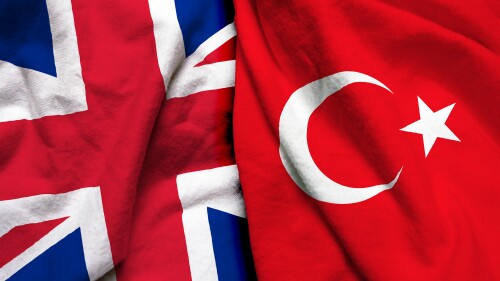As Israel continues its war on Hamas and Iran, NATO harbors a new axis of political, military, and diplomatic hostility toward Israel. As Ankara seeks to isolate Israel, Turkey uses its NATO membership not just to shield itself from accountability for its own terror support and regional adventurism, but also to align and mobilize allies like Spain in a campaign to delegitimize and even sanction Israel under the guise of human rights concerns.
Under the leadership of Socialist Prime Minister Pedro Sánchez, Spain has become one of the loudest voices in Europe calling for punitive measures against Israel. These actions, once seen as symbolic, are now buttressed by strategic cooperation with Turkey in defense and regional diplomacy. Their convergence signals an effort to recalibrate European discourse in ways that undermine Israel’s standing among its traditional allies.
[Prime Minister Pedro] Sánchez has positioned himself as a leading European critic of Israel’s military operations.
Sánchez has positioned himself as a leading European critic of Israel’s military operations. In recent weeks, he called for a European arms embargo and political sanctions on Israel, accusing it of committing war crimes and violating international humanitarian law. On May 28, 2025, Sánchez met with European Commission President Ursula von der Leyen, demanding the European Union stop Israel’s war on Hamas.
The Spanish government also endorsed a U.N. General Assembly resolution, co-sponsored with the Palestinian Authority, calling for the end of Israel’s blockade on Gaza, asserting that it amounts to collective punishment in violation of international law.
These moves are not rhetorical alone. Sánchez has urged that international cultural organizations exclude Israel, citing precedents used against Russia after its invasion of Ukraine. He was blunt: “What applies to Russia must apply to Israel. No double standards,” he stated.
He has matched this rhetorical campaign with a realignment toward Turkey. Late last month, Sánchez visited Istanbul to attend the Socialist International summit. There, he met with Turkish President Recep Tayyip Erdoğan and echoed his host’s aggressive stance toward Israel. During his speech at the summit, Sánchez declared, “Gaza belongs to the Palestinians,” and accused Israel of attempting to ethnically cleanse the territory with forced displacement.
Erdoğan, a champion of Islamist causes and an adversary of Israel, offered Sánchez a platform in Istanbul to amplify his own demands for sanctions and international legal action against the Jewish state. This convergence reflects not just an ideological affinity but a coordinated strategic posture—especially when viewed alongside growing military cooperation between the two countries.
The Spain-Turkey relationship now includes substantive military-industrial collaboration. On May 14, 2025, Turkish Aerospace Industries and the Spanish Ministry of Defense signed an agreement for the acquisition of 24 Turkish-designed Hürjet advanced trainer aircraft for the Spanish Air Force. The deal includes partial production in Spanish facilities of Airbus and is a response to Spain’s need to replace its aging Northrop F-5M trainers.
The Spain-Turkey relationship now includes substantive military-industrial collaboration.
Even more strategically consequential is the potential transfer of Airbus A400M tactical transport aircraft from Spain to Turkey. Spain previously had ordered surplus units from Airbus that it no longer needed, and Ankara is reportedly negotiating to acquire them—either through direct purchase or offset within the Hürjet deal framework. The acquisition of additional A400Ms would significantly enhance Turkey’s strategic airlift capability and its ability to project power across the Eastern Mediterranean and North Africa.
These military arrangements, though couched in the language of procurement and industrial cooperation, create a web of dependency and alignment. By integrating Spanish defense systems with Turkish platforms, the two countries establish interoperability that will likely extend to operational coordination within NATO.
Israel and the United States must recognize that these developments are not incidental. They reflect a broader recalibration of European politics—one that Ankara is actively orchestrating to turn NATO’s own internal diversity into a political weapon against the Jewish state.
One potential means of countering Spain’s growing political hostility toward Israel lies in the strategic application of U.S. sanctions targeting its military infrastructure. The Spanish Armed Forces, and particularly the Spanish Air Force, remain reliant on U.S.-made weapon systems, including a substantial fleet of F/A-18A/B MLU Hornet fighter jets and other American-manufactured platforms.
By selectively restricting maintenance support, spare parts, or future upgrades for these aircraft, the United States could exert pressure on Madrid. Such measures, even if symbolic or reversible, would send a signal other NATO states willing to follow Spain’s lead that any attempts to join Turkey’s campaign against the State of Israel will incur tangible costs.







